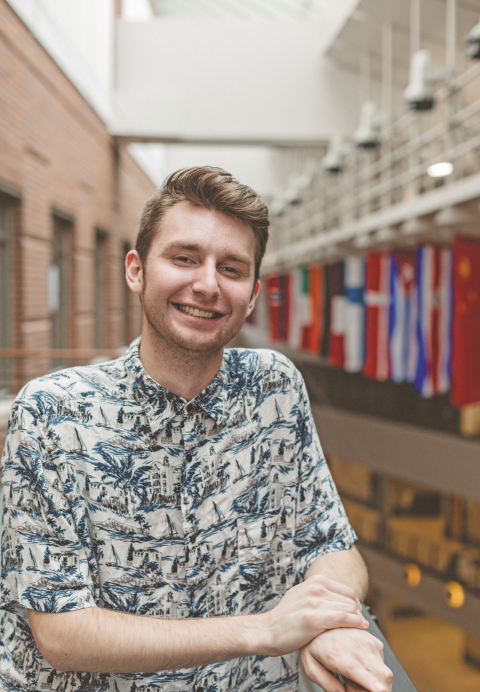Self-Sustainability
begins with entrepreneurship on a global scale
By Peter Fretty

With the right support, entrepreneurship can wield great power. With a mission of investing in LGBT entrepreneurs across borders, the Minneapolis, MN-based Mossier Social Action & Innovation Center is serving as a platform designed to empower people to realize sustainability.
“We started with the hypothesis that the future of the LGBT movement had to include the international community serving LGBT populations under the radar, often in countries where LGBT is illegal,” says founder Nick Alm. “In these countries no employment protection exists – forcing LGBT individuals into entrepreneurship. Unfortunately, there are very few organizations who work on development or funding of LGBT businesses. If they do exist, they are US-based and US-focused.”
Taking action
Rather than utilizing complicated loans with steep metrics, Mossier teams with a few like-minded US businesses and organizations to fund businesses, provide coaching, consulting and technical assistance. “We see entrepreneurship as a means of evaluating the impact to social, emotional and spiritual well-being.”
Although initially unsure how to safely identify people to participate, the Mossier team started getting connections through local HIV organizations. “They had a very large network of really radical people who were willing to take a step out and ask for funding,” he says. “They develop plans and do what is needed to get their enterprises off the ground. They are grateful someone is actively thinking about funding them.”
The first business Mossier fully funded was a taxi cab in Nairobi, Kenya. Over an 18-month period, it has provided fulltime employment for 6 HIV positive LGBT individuals. Mossier is also funding a chicken farm that will employ 60 lesbian refugees in a Kenya refugee camp. The hope is the more successful this program is, the more funders and donors it will bring into the fray.
For the people Mossier invests in, entrepreneurism is the only option. However, it’s typically an enduring process. “We are trying to raise awareness for the conditions these individuals are facing with the goal of funding more projects,” he says. “Even if they tried to obtain funding from the larger national organizations, the paperwork and funding requirements including monitoring and evaluation is well beyond their capabilities. We met a lot of people who were extremely frustrated with the current model of international development.”
Alm would like to see a few larger US-based organizations surrender some of the control when investing in these international development opportunities. “The more we surrender control, the more we enable progress. This is a community looking for an avenue to meet its most basic needs, and our goal is help provide a gateway to a sustainable livelihood,” he says. “Only then can they even think about marriage equality or policy changes”
Road ahead
The pool of people funding these activities remains small. Although US LGBT issues are incredibly important, we need to advocate for global individuals as well. “It is going to take time before governments, corporations and not-for-profit organizations are ready to take a big risk by entering this international space.”
Although the pool of people funding these activities is currently quite small, within the next five years, Alm envisions reaching a level where it is investing $1 millions annually across an array of countries. “It is very feasible, and the potential impact is phenomenal. For instance, our average project averages between $10-15k, so at this level we would be looking at up to 100 projects per year,” he says.
Carrying on
Mossier is named after Kevin Mossier who started RSVP Vacations and created opportunities for LGBT to travel securely. When he died in 1996, he established a foundation to fund grassroots LGBT movements in Minnesota. His foundation closed out in 2016 and Mossier Social Action and Innovation Center assumed the remaining funds.
“The purpose is to extend his vision, but on a global scale,” says Alm. “We are looking to create an intergenerational movement. This is important because most LGBT do not have LGBT parents nor children. If you are a member of a cultural group, the history and traditional has been passed down naturally – we do not have that.”




Leave A Comment